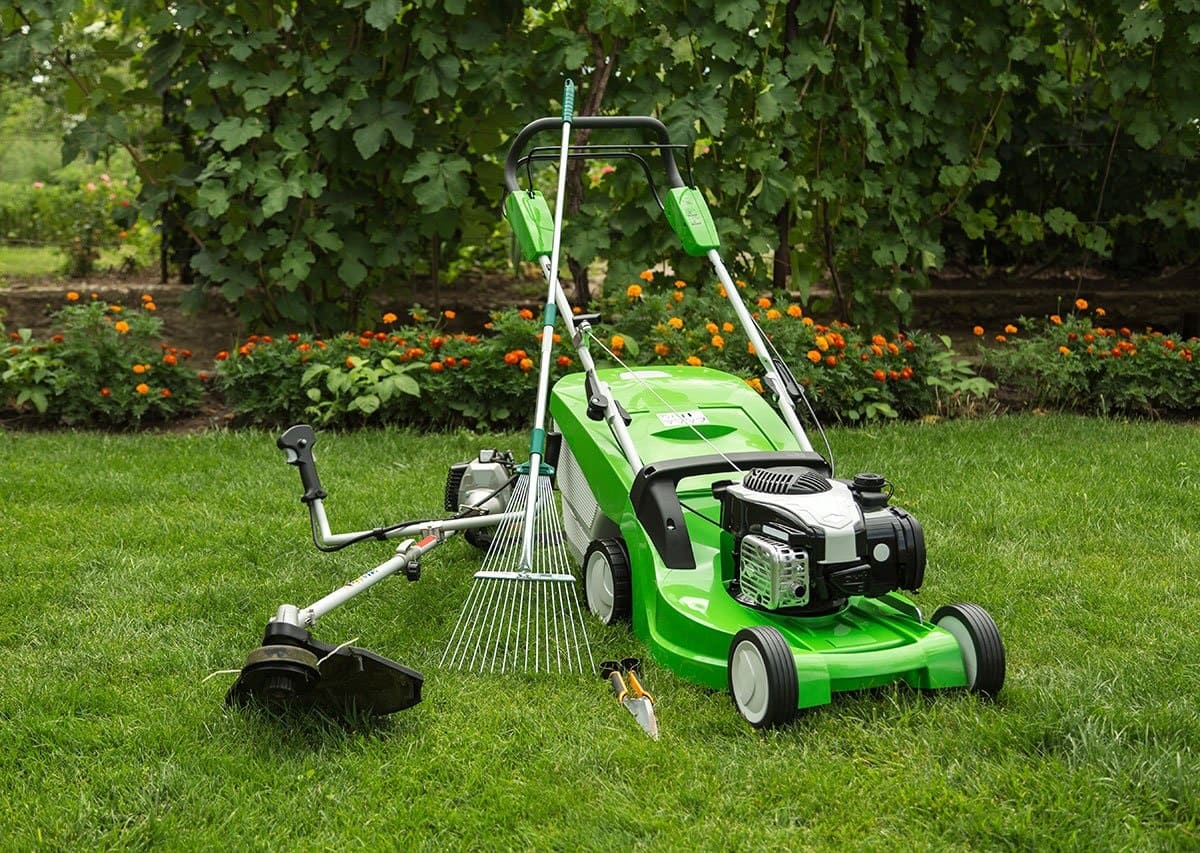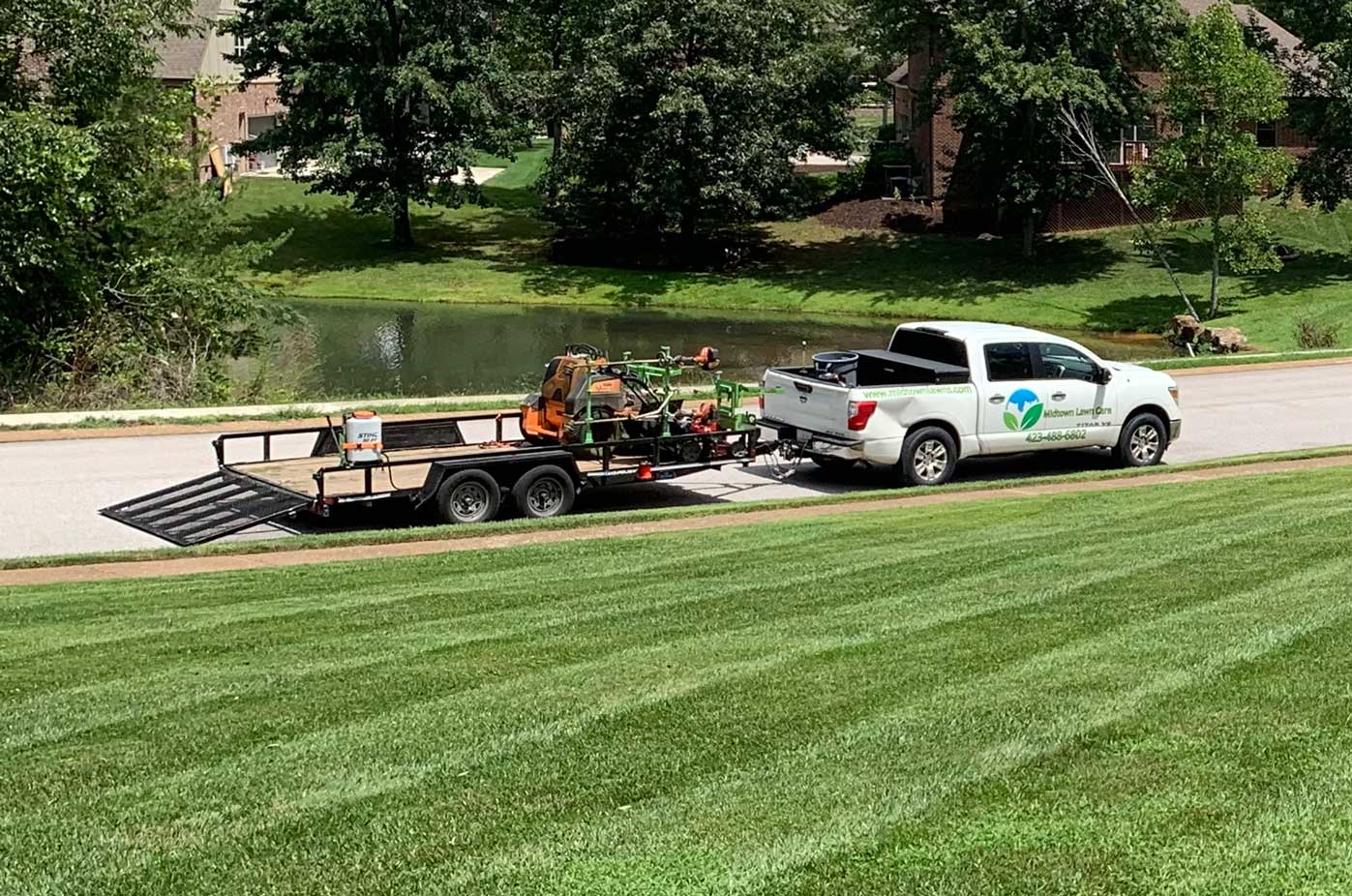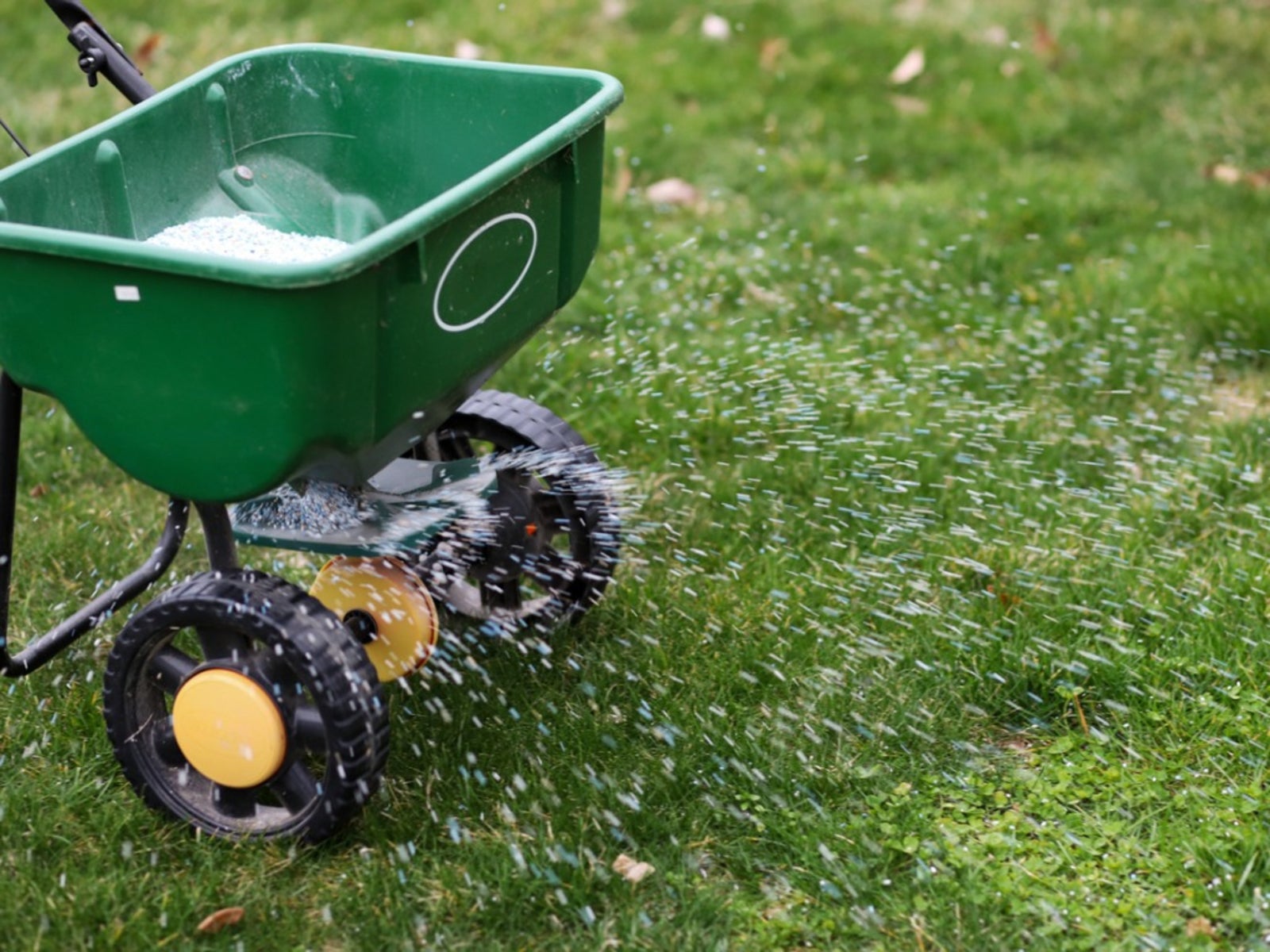Home>Garden Essentials>How To Run A Good Lawn Care Business


Garden Essentials
How To Run A Good Lawn Care Business
Modified: March 7, 2024
Learn how to successfully run a garden care business and achieve great results. Discover essential tips and strategies for maintaining beautiful and healthy gardens.
(Many of the links in this article redirect to a specific reviewed product. Your purchase of these products through affiliate links helps to generate commission for Storables.com, at no extra cost. Learn more)
Introduction
Welcome to the world of lawn care—where lush green lawns and beautiful landscapes are the hallmark of well-maintained properties. For those with a passion for gardening and a knack for business, starting a lawn care business can be a rewarding venture. Whether you’re a seasoned gardener looking to turn your hobby into a profitable enterprise or someone starting from scratch, this comprehensive guide will provide you with the knowledge and insights you need to run a successful lawn care business.
The lawn care industry is a thriving market, with homeowners and businesses alike willing to invest in professional services to ensure their outdoor spaces are well-maintained. With the right approach and a solid business plan, you can tap into this lucrative industry and establish a thriving lawn care business.
Understanding the dynamics of the lawn care industry is crucial before diving into the business. Homeowners and property managers seek lawn care services for various reasons, including lack of time, expertise, or equipment to maintain their lawns. By offering reliable and top-quality services, you can position your business as a trusted partner for all their lawn care needs.
Starting a lawn care business requires careful planning and organization. Before getting your hands dirty, it’s essential to establish a strong foundation for your business. This includes creating a business plan, acquiring the necessary equipment and supplies, hiring the right employees, and developing a solid marketing strategy.
Providing excellent customer service is an integral aspect of any successful lawn care business. From the first interaction to the ongoing care of the lawn, ensuring customer satisfaction should be a top priority. By going above and beyond to exceed customer expectations, you can build a loyal customer base and generate positive word-of-mouth referrals.
Managing your finances and setting the right pricing structure can make or break your lawn care business. It’s important to track your expenses, set competitive prices, and ensure profitability while remaining fair to your customers. Additionally, as your business grows, you may consider expanding your services or even venturing into new markets to increase revenue and reach a wider audience.
Running a lawn care business has its challenges, but with the right approach and a passion for gardening, you can create a successful venture that brings beauty and joy to your clients’ outdoor spaces.
So, let’s embark on this journey together and explore the ins and outs of running a top-notch lawn care business!
Key Takeaways:
- Starting a lawn care business requires careful planning, quality equipment, and excellent customer service to succeed in the thriving industry. Passion, knowledge, and adaptability are essential for long-term success.
- Expanding a lawn care business involves identifying new service opportunities, targeting new markets, and investing in technology. Providing exceptional customer service and staying adaptable are key to continued growth.
Read more: How To Run A Bounce House Business
Understanding the Lawn Care Industry
Before diving into the world of lawn care business, it’s crucial to have a solid understanding of the industry. The lawn care industry encompasses a wide range of services aimed at maintaining and enhancing the beauty and health of lawns and landscapes.
The demand for lawn care services has been steadily growing in recent years. With an increasing number of homeowners and businesses recognizing the importance of well-maintained outdoor spaces, there is a significant market for professional lawn care providers. From residential properties to commercial complexes, parks, and golf courses, there is a diverse range of clients who require lawn care services.
One of the key factors driving the growth of the lawn care industry is the rising popularity of outsourcing. Many homeowners and property managers lack the time, expertise, or specialized equipment to take care of their lawns themselves. As a result, they turn to professional lawn care providers who can deliver superior results and save them the hassle of lawn maintenance.
The lawn care industry is not just about mowing lawns. It encompasses a wide range of services, including fertilization, weed control, pest management, landscaping, and irrigation system installation and maintenance. By diversifying your service offerings, you can cater to a broader range of clients and increase your revenue streams.
Additionally, the industry is also influenced by seasonal trends. Depending on the region and climate, the demand for certain services may vary throughout the year. For example, springtime often sees an increased demand for fertilization and weed control, while fall may be the busiest season for leaf removal.
Keeping up with industry trends and innovations is crucial in staying competitive in the market. As technologies and techniques evolve, lawn care businesses must adapt and embrace new practices to deliver high-quality services. This may include incorporating sustainable practices, such as using organic fertilizers or implementing water-saving irrigation systems.
Another important aspect of the lawn care industry is building a strong network of suppliers and partners. Having reliable sources for equipment, fertilizers, and other supplies is essential to ensure the smooth operation of your business. Building relationships with local garden centers or nurseries can also be beneficial in terms of referrals and access to specialized products.
By understanding the dynamics of the lawn care industry, you can position your business strategically and anticipate the needs of your target market. Whether it’s staying updated on the latest industry trends or identifying niche service areas, being knowledgeable about the industry will set you apart from the competition and help you build a successful lawn care business.
Setting Up Your Lawn Care Business
Setting up a lawn care business requires careful planning and organization to ensure a solid foundation for your venture. Here are the key steps to take when starting your lawn care business:
- Decide on your business structure: Determine whether you want to operate as a sole proprietorship, partnership, or limited liability company (LLC). Each structure has its own advantages and considerations. Consult with a legal professional or an accountant to select the most appropriate structure for your business.
- Register your business: Visit your local government office to register your business and obtain the necessary permits and licenses. This ensures that you are compliant with local regulations and can operate legally. Additionally, consider obtaining insurance coverage to protect yourself and your business against any unforeseen incidents or accidents.
- Develop a business plan: A well-crafted business plan serves as the roadmap for your lawn care business. It should outline your goals, target market, competitive analysis, marketing strategies, and financial projections. This plan will guide your decision-making process and help you stay focused on your business objectives.
- Define your services: Determine the specific lawn care services you will offer. This may include mowing, trimming, fertilizing, weed control, aeration, and more. It’s important to identify your unique selling points and differentiate yourself from competitors based on the services you provide.
- Acquire the necessary equipment and supplies: Invest in high-quality lawn care equipment, such as mowers, trimmers, blowers, and fertilization spreaders. Depending on the scale of your business, you may also need a truck or trailer to transport your equipment. Establish relationships with reliable suppliers to ensure a steady supply of fertilizers, seeds, and other necessary supplies.
- Hire and train employees: If your business requires additional manpower, hire reliable and skilled employees who share your commitment to quality and customer satisfaction. Provide thorough training to ensure they have the necessary knowledge and skills to perform their tasks effectively. Consider background checks and drug tests for employees who will be working on clients’ properties.
- Invest in software and technology: Utilize lawn care software and apps to streamline operations, track job scheduling, manage customer information, and produce professional-looking invoices. This technology can help enhance your productivity, organization, and overall customer experience.
- Set up a pricing structure: Determine your pricing based on factors such as the size of the lawn, the complexity of the job, and the market rates in your area. Research your competitors’ pricing to ensure your rates are competitive while offering value to your customers. Consider offering bundled services or discounts for recurring customers to incentivize loyalty.
- Market your business: Develop a marketing strategy to promote your lawn care services. Create a professional website, establish a presence on social media platforms, and utilize online directories and review platforms. Distribute flyers, advertise in local newspapers, and network with real estate agents and local businesses to generate leads. Encourage satisfied customers to leave reviews and refer your services to their networks.
By following these steps and putting careful thought and effort into setting up your lawn care business, you can establish a strong foundation for long-term success. Remember to continuously evaluate and adapt your strategies to meet the evolving needs of your target market and stay ahead of the competition.
Creating a Business Plan
A well-crafted business plan is essential for the success of your lawn care business. It serves as a roadmap, guiding your decision-making process and helping you stay focused on your goals and objectives. Here are the key elements to include when creating a business plan:
- Executive Summary: This is an overview of your entire business plan, summarizing the key points and goals of your lawn care business.
- Company Description: Provide a detailed description of your lawn care business, including its mission statement, legal structure, and the services you will offer.
- Market Analysis: Conduct thorough research on your target market, including demographics, competition, trends, and growth potential. Identify your target customers and understand their needs and preferences.
- Offerings: Clearly define the services you will offer, including lawn maintenance, fertilization, weed control, landscaping, and any other specialized services. Highlight your unique selling points and how you differentiate yourself from competitors.
- Marketing and Sales Strategy: Outline your marketing efforts, including online and offline strategies. Identify your target audience, set specific marketing goals, and describe how you will promote your business and attract customers.
- Organization and Management: Provide details about the structure of your lawn care business, including key team members and their roles. This section should also include information about any strategic partnerships or external resources that you plan to utilize.
- Operational Plan: Detail the day-to-day operations of your business, including equipment and supplies, job scheduling, and quality control measures. Outline any necessary permits or licenses required to operate your lawn care business.
- Financial Projections: Include a comprehensive financial plan, including sales forecasts, operating expenses, projected cash flow, and profit margins. This section should also outline your pricing structure and strategies for managing costs.
- Risk Assessment: Identify potential risks and challenges that your business may face, such as seasonality, weather conditions, or equipment breakdowns. Develop contingency plans for handling these risks and mitigating their impact.
- Future Growth and Expansion: Describe your long-term goals and plans for expanding your business. This may include offering additional services, entering new markets, or establishing strategic partnerships.
Creating a business plan is not a one-time task. It should be a living document that you regularly review and update as your business evolves. Use your business plan as a guide for decision-making, evaluating the success of your strategies, and making necessary adjustments to achieve your goals.
Remember, a well-written and thought-out business plan not only helps you secure funding if needed, but it also provides you with a clear direction and framework to build a successful lawn care business.
Getting Your Equipment and Supplies
Having the right equipment and supplies is essential for running a successful lawn care business. Investing in high-quality tools and materials not only ensures efficient operations but also reflects your commitment to delivering top-notch services. Here are some key considerations when acquiring equipment and supplies for your lawn care business:
- Mowing Equipment: The most crucial piece of equipment for a lawn care business is a reliable mower. Consider the size and type of lawns you will be servicing to determine whether you need a push mower, self-propelled mower, or a commercial-grade riding mower. It’s essential to choose a mower that suits your needs and can handle the volume of work you anticipate.
- Trimming Tools: Alongside mowing, trimming is necessary to achieve clean and well-groomed lawns. Invest in quality trimmers and edgers to ensure crisp edges and neat borders. Battery-powered or gas-powered trimmers are popular choices, providing ease of use and durability.
- Blowers and Leaf Vacuums: Clearing leaves, debris, and grass clippings is an important part of lawn maintenance. Opt for a reliable blower with enough power to efficiently clean up lawns and landscapes. Consider the size and weight of the blower to ensure it is comfortable to use for longer periods of time. Leaf vacuums can also be a useful addition for larger properties or during fall clean-ups.
- Fertilizer and Weed Control: Depending on the services you offer, you will need a range of fertilizers and weed control products. Research and select high-quality fertilizers that nourish and promote healthy growth for lawns and plants. Invest in weed control products that effectively target and eliminate common weeds without harming the grass.
- Other Tools and Equipment: Depending on your specialization and the additional services you offer, you may need additional tools and equipment. This may include irrigation system repair tools, aerators, dethatchers, landscaping tools, and more. Evaluate your business model and the needs of your target market to determine the specific tools and equipment required.
- Supplies: Alongside equipment, you will need a regular supply of materials and consumables. This may include grass seeds, mulch, soil, fertilization spreaders, fuel, oil, safety gear, and other necessary materials. Establish relationships with reliable suppliers to ensure a steady and consistent supply of these items.
- Maintenance and Storage: Proper maintenance and storage of your equipment are crucial for prolonging their lifespan. Have a system in place for regular equipment maintenance, including blade sharpening, oil changes, and cleaning. Allocate space for storing your equipment safely, protecting them from the elements and potential theft.
- Consider Renting or Leasing: If you’re starting with a limited budget or want to test out specialized equipment before making a purchase, consider renting or leasing certain equipment. This can provide flexibility and cost savings, especially for seasonal equipment or items that are not frequently used.
When selecting equipment and supplies, prioritize quality and durability over cost. Investing in reliable and high-quality tools and materials will pay off in the long run by ensuring smooth operations, minimizing downtime, and delivering exceptional results to your customers.
Remember to regularly assess your equipment needs as your business grows. As you expand your client base and services, you may need to invest in additional or specialized equipment to meet the demands of your customers and stay competitive in the market.
Hiring and Training Employees
As your lawn care business grows, hiring and training employees becomes an important aspect of ensuring the successful operation and expansion of your company. Here are some key considerations when it comes to hiring and training employees:
- Identify Your Staffing Needs: Determine the number of employees you need based on the size and volume of work you anticipate. Assess your business’s growth potential and consider whether you may need additional hands as your client base expands.
- Recruitment and Selection: Develop a recruitment strategy to attract qualified candidates. Advertise job openings on job boards, social media platforms, or local classifieds. Screen applicants based on their experience, skills, and qualifications. Conduct interviews to assess their suitability for the job and evaluate their work ethic and communication skills.
- Training and Onboarding: Once you’ve hired new employees, provide them with thorough training and orientation. Familiarize them with your business processes, safety protocols, and quality standards. Train them on using equipment properly and efficiently, following specific techniques for different services, and providing excellent customer service.
- Emphasize Safety: Safety should be a top priority in the lawn care industry. Ensure that your employees are trained on safety protocols and provided with the necessary protective gear, such as gloves, safety glasses, and hearing protection. Encourage adherence to safe work practices and provide ongoing reminders and training on safety procedures.
- Customer Service Skills: A crucial aspect of lawn care is providing exceptional customer service. Train your employees on effective communication and interpersonal skills. Emphasize the importance of being friendly, courteous, and professional when interacting with clients. Encourage them to actively listen to customer feedback and address any concerns promptly and courteously.
- Continued Education and Development: Encourage and support your employees’ continued education and development. Provide opportunities for them to attend workshops, seminars, or industry conferences. This not only enhances their skills and knowledge but also demonstrates your commitment to their growth and professional development.
- Performance Evaluation: Regularly evaluate the performance of your employees. Set clear expectations and goals, and provide constructive feedback on their performance. Recognize and reward outstanding work to motivate and retain your top performers. Address any performance issues promptly and provide opportunities for improvement.
- Teamwork and Collaboration: Foster a positive work environment that encourages teamwork and collaboration among your employees. Promote open communication and the sharing of ideas and best practices. Encourage a supportive culture where employees can learn from one another and work together to provide the best service to your clients.
- Employee Retention Strategies: Implement strategies to retain your top talent. This can include offering competitive wages and benefits, providing opportunities for career advancement, creating a positive and inclusive work environment, and recognizing and rewarding outstanding performance.
- Follow Employment Laws and Regulations: Stay informed about local employment laws and regulations to ensure that you comply with all legal requirements. This includes adhering to minimum wage laws, providing appropriate breaks, and maintaining accurate records.
Remember, hiring and training employees is not just about filling roles. It’s about building a strong team that shares your vision and values. By investing in the recruitment, training, and well-being of your employees, you can create a motivated and skilled workforce that contributes to the success of your lawn care business.
Always prioritize customer satisfaction by providing high-quality service, being reliable, and communicating effectively. Happy customers are more likely to become repeat clients and refer others to your lawn care business.
Developing a Marketing Strategy
In the competitive lawn care industry, having a well-executed marketing strategy is essential for attracting and retaining customers. A successful marketing strategy will help you generate leads, build brand awareness, and establish a strong reputation for your lawn care business. Here are some key steps to develop an effective marketing strategy:
- Identify Your Target Market: Determine who your ideal customers are. Consider factors such as demographics, location, property size, and income level. Understanding your target market will allow you to tailor your marketing efforts to reach the right audience.
- Create a Professional Website: Your website is the online face of your business. Build a professional, user-friendly website that showcases your services, displays testimonials or customer reviews, and provides clear contact information. Optimize your website for search engines to improve your online visibility.
- Utilize Local SEO: Implement local search engine optimization (SEO) strategies to improve your website’s visibility in local search results. This includes optimizing your website with relevant keywords, creating location-specific content, and ensuring consistent business information across online directories.
- Create Compelling Content: Produce informative and engaging content about lawn care tips, seasonal maintenance, and landscape design on your website and blog. This establishes you as a knowledgeable and authoritative resource, attracting organic traffic and potential customers.
- Utilize Social Media: Leverage social media platforms to connect with your target audience and promote your services. Share before-and-after photos, post lawn care tips, and engage with followers through comments and messages. Provide valuable content that educates and entertains while reinforcing your expertise.
- Encourage Reviews and Referrals: Positive reviews and word-of-mouth recommendations are powerful marketing tools. Encourage satisfied customers to leave reviews on platforms like Google My Business, Yelp, or Facebook. Offer incentives, such as referral discounts or rewards, to customers who refer your lawn care services to others.
- Partner with Local Businesses: Build relationships with local businesses, such as landscaping companies, garden centers, or real estate agencies. Offer mutually beneficial partnerships or cross-promotions to expand your reach and tap into new customer networks.
- Advertise: Consider targeted advertising methods to increase your visibility. This can include placing ads in local newspapers, distributing flyers in targeted neighborhoods, or utilizing online advertising platforms such as Google Ads or social media ads.
- Join Local Associations or Events: Get involved in local associations or participate in community events related to gardening or landscaping. This allows you to network with potential customers and showcase your expertise in the field.
- Provide Excellent Customer Service: Exceptional customer service is a powerful marketing tool. Go above and beyond to exceed customer expectations, respond promptly to inquiries, and address any concerns. Happy customers will become your brand ambassadors, spreading positive word-of-mouth about your services.
Consistency is key when implementing your marketing strategy. Regularly assess the effectiveness of your marketing efforts, tracking results and adjusting strategies accordingly. Listen to customer feedback and adapt your marketing messages to better resonate with your target audience.
Remember, successful marketing is an ongoing effort that requires both creativity and data-driven decision-making. By effectively promoting your lawn care business, you can attract the right customers and establish a strong presence in the market.
Providing Excellent Customer Service
Delivering excellent customer service is essential for building a strong reputation and ensuring the long-term success of your lawn care business. By going above and beyond to exceed customer expectations, you can foster customer loyalty, generate positive reviews, and attract repeat business. Here are some key practices to provide exceptional customer service:
- Clear Communication: Maintain open and transparent communication with your customers. Clearly explain your services, pricing, and any applicable terms and conditions. Listen actively to their needs and concerns, and provide timely and detailed responses to their inquiries.
- Reliability and Punctuality: Be reliable and punctual in delivering your services. Stick to scheduled appointments and inform your customers in advance of any changes or delays. Consistently delivering quality work on time will build trust and show your commitment to customer satisfaction.
- Professionalism and Appearance: Present a professional image by having a clean and well-maintained company vehicle, wearing a uniform, and ensuring your employees are well-groomed. A professional appearance instills confidence in your customers, making them more likely to trust and recommend your services.
- Customized Service: Tailor your services to meet the specific needs and preferences of each customer. Take the time to understand their lawn care goals and address any specific concerns they may have. Offer personalized recommendations or additional services that can enhance the health and beauty of their lawn.
- Attention to Detail: Pay attention to the smallest details in your work. Mow lawns with precision, trim edges neatly, and clean up any debris or clippings after the job is complete. Quality workmanship and meticulous attention to detail will leave a lasting impression on your customers.
- Proactive Communication: Anticipate and address any issues or potential concerns before they escalate. Regularly communicate with your customers to provide updates on their lawn’s progress, upcoming services, or any recommended treatments. Proactive communication shows that you care about their lawn care needs.
- Prompt Issue Resolution: If a customer raises a complaint or concern, handle it promptly and professionally. Listen attentively to their feedback and take steps to address the issue. Offer solutions or alternatives to resolve the problem to their satisfaction. Turning a negative experience into a positive one can leave a lasting impression and build customer loyalty.
- Follow-Up and Feedback: Follow up with your customers after providing a service to ensure their satisfaction. Ask for their feedback on the quality of work and customer service they received. Act upon their suggestions and use their feedback to continuously improve your services.
- Customer Education: Educate your customers on proper lawn care practices and provide helpful tips for maintaining a healthy and vibrant lawn. Share resources or guides that they can refer to for ongoing lawn care. By empowering your customers with knowledge, you build trust and position yourself as a trusted lawn care partner.
- Appreciation and Recognition: Show appreciation to your customers for their loyalty and support. Send thank-you notes or emails, offer exclusive discounts or promotions, or provide small tokens of appreciation. Recognize and reward loyal customers to strengthen your relationship with them.
Providing excellent customer service is not just about completing the job—it’s about creating a positive experience for your customers from start to finish. By making customer satisfaction a top priority, you can build strong relationships, earn valuable referrals, and establish your business as a trusted leader in the lawn care industry.
Managing Finances and Pricing
Managing your finances effectively and setting the right pricing structure are crucial aspects of running a successful lawn care business. Proper financial management ensures profitability, allows for growth and expansion, and helps you make informed decisions. Here are some key strategies for managing finances and pricing your services:
- Track Expenses: Keep detailed records of all business expenses, including equipment purchases, supplies, fuel, insurance, marketing costs, and employee wages. Use accounting software or spreadsheets to track and categorize expenses for easy analysis and tax preparation.
- Establish a Budget: Create a budget that outlines projected income and expenses for your lawn care business. This will help you allocate resources, plan for future investments, and ensure you have a clear understanding of your financial health.
- Determine Overhead Costs: Calculate your overhead costs, including equipment maintenance and repairs, fuel, office expenses, and any administrative expenses. Divide these costs by the number of jobs or hours you anticipate completing to determine the overhead cost per job.
- Calculate Cost of Goods Sold: Calculate the direct costs associated with providing each service, such as labor, materials, and any subcontractor fees. This will help you determine the cost of goods sold (COGS) for each job.
- Research Competitors’ Pricing: Study your competitors’ pricing to ensure your rates are competitive within your market. Consider factors such as services offered, quality of work, and reputation when evaluating your pricing strategy.
- Determine Your Profit Margin: Determine the profit margin you want to achieve and factor this into your pricing structure. Take into account your overhead costs, COGS, and desired profit margin to set your rates accordingly.
- Consider Value-Based Pricing: Instead of focusing solely on competitive pricing, consider value-based pricing. Highlight the unique value and benefits you offer to customers, such as exceptional customer service, specialized services, or use of high-quality products.
- Offer Bundled Services or Packages: Create bundled service packages to provide added value to your customers. Consider offering discounts or additional services when customers sign up for ongoing maintenance plans or combine multiple services.
- Incorporate Upselling Opportunities: Identify opportunities to upsell additional services or upsell on existing services. Offer enhancements such as aeration, overseeding, or landscape design to increase the value of each job and generate additional revenue.
- Regularly Review and Adjust Pricing: Continuously monitor and assess your pricing strategy. Take into account changes in expenses, market conditions, and customer feedback. Regularly review and adjust your rates to ensure you remain competitive and profitable.
Remember, pricing should reflect the value you provide and allow for sustained profitability. Regularly evaluate your financial performance, track key performance indicators (KPIs), and make data-driven decisions to optimize your pricing strategy and financial management.
Managing finances and setting the right prices requires a combination of research, analysis, and sound business judgment. By staying on top of your finances and implementing a strategic pricing structure, you can ensure the long-term success and sustainability of your lawn care business.
Read more: How Much To Start A Lawn Care Business
Expanding and Growing Your Business
Once your lawn care business is established, you may have ambitions to expand and grow your operations. Expanding your business can help you increase revenue, reach a wider audience, and establish a stronger foothold in the market. Here are some strategies to consider when expanding and growing your lawn care business:
- Identify New Service Opportunities: Explore new service opportunities that align with your expertise and customer demands. This could include offering additional specialized services such as landscaping design, irrigation system installation and maintenance, tree care, or hardscaping. Research market trends and conduct customer surveys to identify potential areas for expansion.
- Target New Markets: Consider expanding your reach by targeting new markets. This could involve entering commercial lawn care or targeting specific industries, such as hotels, schools, or healthcare facilities. Tailor your marketing efforts to reach these new customer segments and showcase your ability to meet their unique needs.
- Establish Strategic Partnerships: Collaborate with other businesses in related industries, such as landscapers, nurseries, or property management companies. Forming strategic partnerships can help you access new customers and create mutually beneficial opportunities for referral and cross-promotion.
- Invest in Equipment and Technology: As your business grows, consider investing in new equipment and technologies that can streamline your operations and enhance efficiency. This may include upgrading mowers and tools, investing in advanced irrigation systems, or leveraging software for scheduling, invoicing, and customer relationship management.
- Hire and Train Additional Staff: Expanding your business may require hiring additional staff to handle the increased workload. Recruit experienced and qualified individuals who align with your company values and have the necessary skills to deliver high-quality services. Provide thorough training to ensure consistency and maintain the level of professionalism your customers expect.
- Enhance Customer Experience: Continuously seek ways to enhance the customer experience and exceed expectations. Offer flexible scheduling options, provide online payment capabilities, and implement a customer feedback system to ensure open lines of communication. Investing in exceptional customer service will help build customer loyalty and generate positive word-of-mouth referrals.
- Implement Marketing Strategies: Expand your marketing efforts to target new customers and increase brand awareness. Utilize online advertising, social media promotions, and local SEO strategies to reach your target market effectively. Consider utilizing customer testimonials and case studies to showcase your successful projects and build credibility.
- Monitor Financial Performance: Regularly review your financial performance to ensure that expansion initiatives are generating a positive return on investment. Monitor key performance indicators (KPIs) such as revenue growth, customer acquisition costs, and profitability. Make strategic adjustments as needed to optimize your financial performance.
- Continued Education and Certifications: Stay up-to-date with the latest industry trends and advancements by pursuing further education and certifications. This demonstrates your commitment to excellence and positions you as a knowledgeable and trusted professional in your field. Continuous learning will help you stay competitive and offer the best possible services to your customers.
- Maintain a Strong Online Presence: A strong online presence is vital for expanding your business. Invest in a user-friendly website, regularly update your social media platforms, and actively engage with online reviews and feedback. Leverage the power of online marketing to attract new customers and showcase your expanding services.
Expanding and growing your lawn care business requires careful planning, strategic decision-making, and a commitment to delivering high-quality services. Continuously analyze market trends and customer needs to identify opportunities for expansion. With the right strategies in place, you can take your lawn care business to new heights of success.
Conclusion
Congratulations! You have now gained a comprehensive understanding of what it takes to run a successful lawn care business. Starting from the basics of understanding the industry to expanding and growing your operations, you now have the foundation necessary to embark on this exciting journey.
Running a lawn care business requires a combination of passion, knowledge, and business acumen. By delivering exceptional service, providing excellent customer care, and continuously improving your skills and offerings, you can establish a strong reputation and build a loyal customer base.
Remember, the key to success lies in meticulous planning and organization. Developing a solid business plan, acquiring the right equipment and supplies, hiring and training a skilled team, and implementing effective marketing strategies are essential components of your overall success.
Financial management and pricing strategies should never be underestimated, and keeping a close eye on your finances will ensure the long-term sustainability of your operation. Upsell opportunities, customer referrals, and partnerships with local businesses can all contribute to continued growth and expansion.
As your business grows, remember to stay adaptable and open to new opportunities. Stay connected with the industry, attend conferences, and continuously seek ways to improve your skills and knowledge. Embrace technology and innovative practices that enhance efficiency and customer experience.
Finally, never underestimate the power of providing exceptional customer service. Making customer satisfaction a top priority will not only help you retain existing clients but will also generate positive word-of-mouth referrals, which can be a powerful marketing tool.
Now, armed with this knowledge, it’s time to take the leap and build a thriving lawn care business. Stay passionate, stay dedicated, and continually strive for excellence in all that you do. Best of luck on your journey to success!
Frequently Asked Questions about How To Run A Good Lawn Care Business
Was this page helpful?
At Storables.com, we guarantee accurate and reliable information. Our content, validated by Expert Board Contributors, is crafted following stringent Editorial Policies. We're committed to providing you with well-researched, expert-backed insights for all your informational needs.














0 thoughts on “How To Run A Good Lawn Care Business”